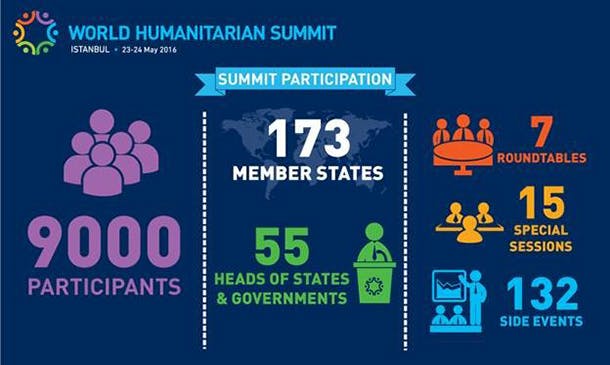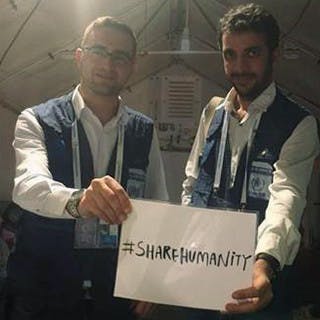
The first-ever World Humanitarian Summit in Istanbul on May 23-24 was about people – people who have been forgotten and who are often neglected on the global agenda. Attending the summit inspired hope that the world is committed to doing more. One important takeaway from the summit was that world leaders acknowledged the importance of engaging every sector, including the private sector, to meet today’s humanitarian needs. Our problems are too big for any one sector, and we need the ideas, resources, and skills of every sector at the table. I want to share the messages of three inspiring global leaders at the event and their vision for change.
David Miliband, CEO of the International Rescue Committee and former Secretary of State for Foreign Affairs of the United Kingdom. Miliband was one of the most articulate and inspiring speakers at the World Humanitarian Summit. Here are five key takeaways from his message.
1. He called out the private sector asking them to shift their CSR mentality from Corporate Social Responsibility to “Corporate Social Results.”
2. He reminded an audience of government, nonprofit, and private sector leaders that “we need a genuine system that works to help 60 million people” (the number of refugees and internally displaced people today) and suggested that there is no way to tackle this issue without the help of the private sector.
3. As he said, “Success is not simply allowing people to survive, it must be ensuring people thrive.”
4. Ideas need to be implemented as part of government policy. Words need to turn into governmental commitments.
5. The next Secretary-General’s term should be defined by his/her impact on refugee crises.
H.E. Mr. Jan Eliasson, Deputy Secretary-General of the United Nations. At a World Humanitarian Summit business breakfast hosted by the UN Foundation and the UN Global Compact, the Deputy Secretary-General spoke from the heart about the reasons the world needs to do more.
Here are top takeaways from his remarks.
1. He explained the shift in the private sector away from charity to CSR, but suggested that now even CSR needs to evolve.
2. We need to think beyond just doing the right thing. The reality is that we need to do it because it is in our united interest. We need to do this in the interest of our children and grandchildren.
3. The violation of human rights affects all of us in this globalized world. If migrants are seen in a negative light, it is bad for all of us. Our voices are needed. There is no development without peace; there is no peace without development. We have neither without human rights.
Ruma Bose, President of the Chobani Foundation and Tent Foundation, and alumnus of the United Nations Foundation’s Global Entrepreneurs Council. Her voice was perhaps the strongest coming from the private sector. Her mission at the Tent Foundation is to unite the private sector in aiding refugees and solving global problems. Committed companies range from the largest multinational companies like Cisco, IBM, and MasterCard to startups like Indiegogo and Cotopaxi.
Here are important messages that we heard from Bose:
1. She shared a recent report published by the Tent Foundation showing that for every dollar invested in refugees, countries can expect an output of two dollars. This is of course based on refugees finding employment – which is why the private sector is so critical in this effort.
2. We need to find ways to help the private sector understand what talent exists in the refugee community.
3. The private sector is able to take risks that non-governmental organizations can’t take. Businesses and private sector innovators can move faster and use the entrepreneurial spirit to solve problems in unique and creative ways.

With approximately one in seven humans on the planet living as migrants, it is important that we not work in isolation. It is essential to have forums such as the World Humanitarian Summit that spark collaboration, provide exposure to new ideas, and help connect people and organizations from around the world. While we have a long way to go, I feel optimistic that we are moving in the right direction and look forward to continuing to engage on humanitarian issues.
To learn more about what happened at the summit, visit worldhumanitariansummit.org.
Davis Smith is the Founder and CEO of Cotopaxi, an outdoor gear company with a humanitarian mission at its core. He is also a member of the UN Foundation’s Global Entrepreneurs Council.
[Images: World Humanitarian Summit]

